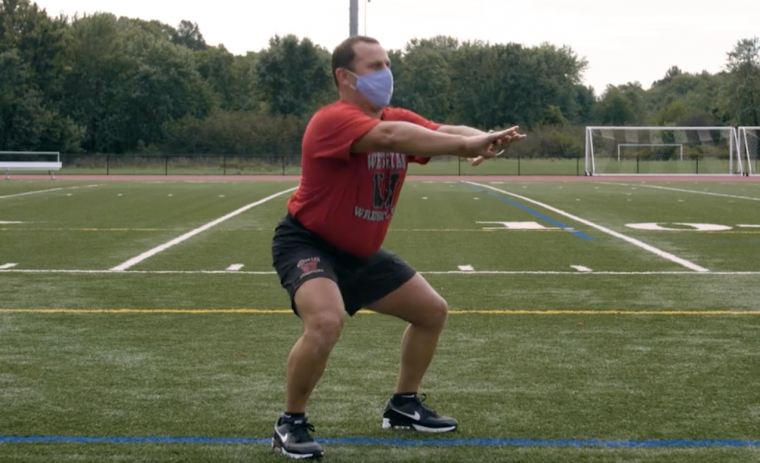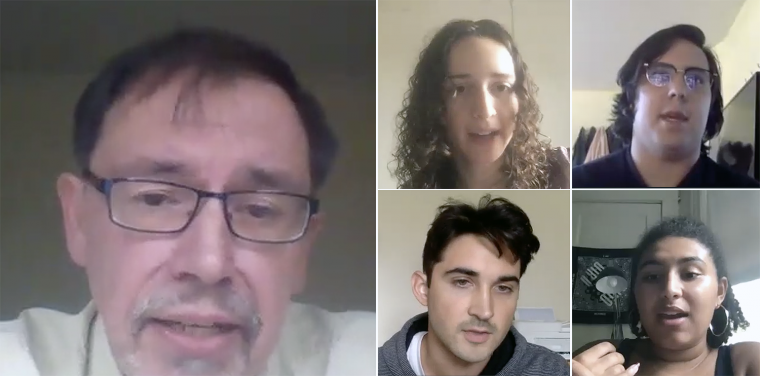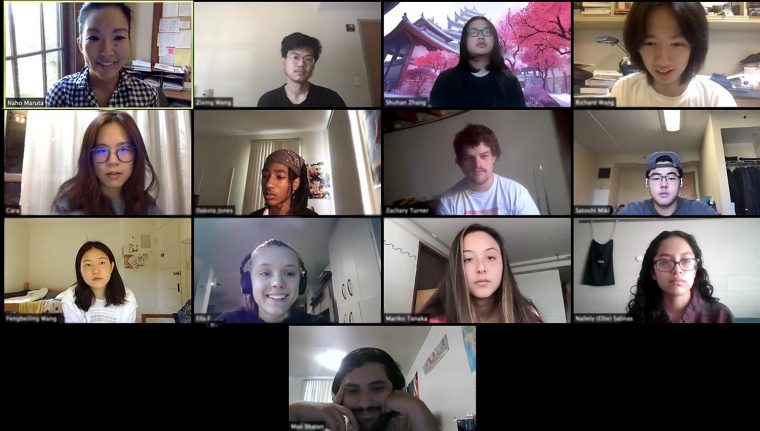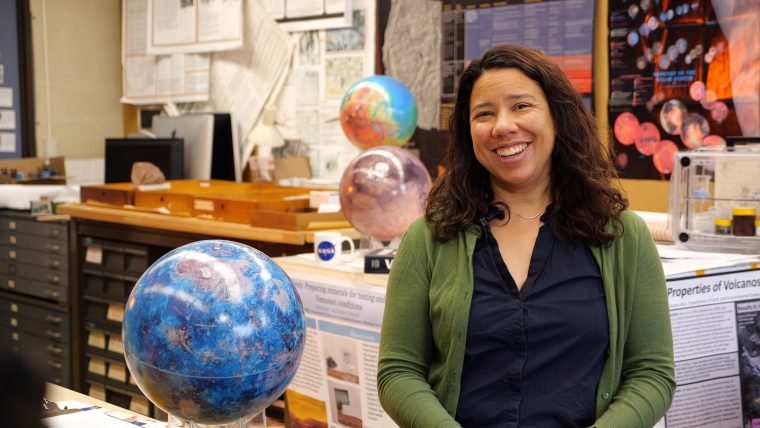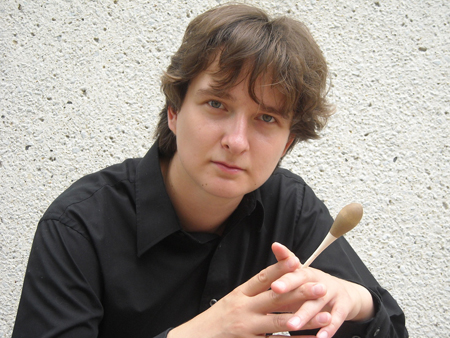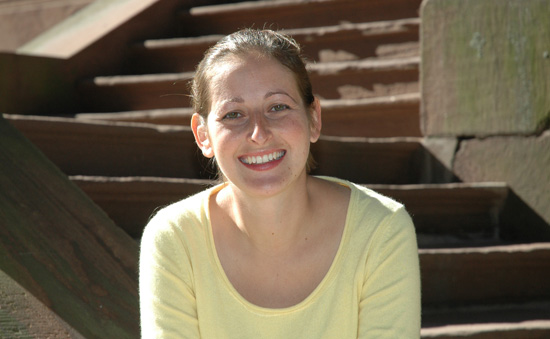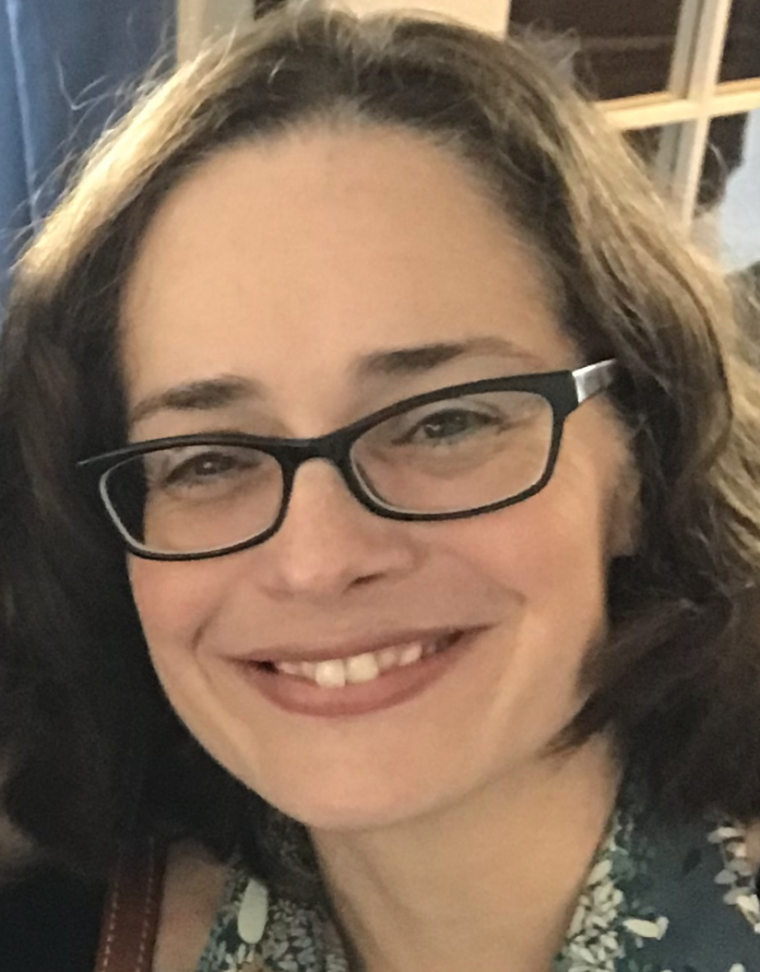In this video, Wrestling Head Coach and Strength and Conditioning Coach Drew Black suggests exercises for the lower body, upper body, and core. "Whether we're inside our dorm room or outside on campus, here are some opportunities to take care of your mind and take care of your body and get some exercise in," he said.
When the COVID-19 outbreak disrupted in-person classes last spring, several faculty found innovative and creative ways to adapt to online teaching and learning. In the second of a fall-semester series, we'll be highlighting ways faculty from various departments are coping with teaching during a pandemic, and showcase individual ways courses are thriving in an online or hybridized environment. In this issue, we spotlight Peter Rutland from the Government Department. Peter Rutland, the Colin and Nancy Campbell Professor in Global Issues and Democratic Thought, professor of government, is teaching GOVT 157: Democracy & Dictatorship and GOVT 278: Nationalism this fall. He's…
Several remote teaching and learning "success stories" are now published on the Office for Faculty Career Development's (OFCD) Teaching Matters website. "We hope the stories inspire others to make changes and make it clear to everyone that it was possible to make the transition well," said Mary Alice Haddad, the John E. Andrus Professor of Government and director of the OFCD. The stories are based on surveys administered by Academic Affairs last spring. Although there were many courses that went well in spring 2020, Haddad selected to present a diversity of courses drawn from different class sizes, pedagogy styles, synchronous/asynchronous…
When the COVID-19 outbreak disrupted in-person classes last spring, several faculty found innovative and creative ways to adapt to online teaching and learning. In the first of a fall-semester series, we'll be highlighting ways faculty from various departments are coping with teaching during a pandemic, and showcase individual ways courses are thriving in an online or hybridized environment. In this issue, we spotlight Naho Maruta from the College of East Asian Studies; Alison O’Neil from the Chemistry Department; and Ron Jenkins from the Theater Department. Naho Maruta, associate professor of the practice in East Asian studies, chose to teach her…
Martha Gilmore, George I. Seney Professor of Geology and professor of earth and environmental sciences, is prominently featured in a recently released suite of five documentary films about the history, science, exploration, and possible settlement of the planet Venus. In the films, Gilmore, who is co-coordinator of planetary science at Wesleyan, along with other experts in a range of fields, help to illuminate and elucidate the fascinating history and possible future of the second planet from the sun, commonly known as Earth's "sister planet." The suite of films was produced by filmmaker and space exploration advocate Dave Brody P '24.…
Nadya Potemkina, adjunct associate professor of music, placed third in The American Prize competition, in the category of orchestral programming. The American Prize—Vytautas Marijosius Memorial Award in Orchestral Programming—honors the memory of the great Lithuanian conductor Maestro Vytautas Marijosius, who served as the music director of the Lithuanian State Opera and the director of orchestral activities at the Hartt School of Music. The prize recognizes and rewards "the best achievement in the unique field of orchestral programming, where the selection of repertoire by knowledgeable, creative and courageous music directors builds orchestras and audiences, educates young people and adults, and enriches…
Ellen Thomas, Harold T. Stearns Professor of Integrative Sciences, University Professor in the College of Integrative Sciences, is the co-author of: "Miocene evolution of North Atlantic Sea Surface Temperature," published in Paleoceanography and Paleoclimatology, 35, in April 2020. "Extensive morphological variability in asexually produced planktic foraminifera," published in Science Advances, 6, in July 2020. "Origin of a global carbonate layer deposited in the aftermath of the Cretaceous-Paleogene boundary impact," published in Earth and Planetary Science Letters, 548, in October 2020.
Before children enter Kindergarten, they're often interested in mathematical concepts like patterns, numbers, and logic. However, math remains under-supported in most preschool settings in the United States. As a recipient of a $1.8 million grant by the National Science Foundation, Associate Professor of Psychology Anna Shusterman hopes to address this educational need by providing preschool settings with a research-based, developmentally appropriate, conceptually rich, flexible, and fun collection of math games that can be incorporated into any classroom. "The preschool years have long been recognized as an opportune time to engage children in mathematical thinking, bootstrapping their natural curiosity and laying a…
Manju Hingorani, visiting scholar in molecular biology and biochemistry, and Brandon Case PhD '19 are co-authors of a new study published in Proceedings of the National Academy of Sciences USA in July 2020. The paper, titled “Recurrent mismatch binding by MutS mobile clamps on DNA localizes repair complexes nearby," reports novel findings about the mechanism whereby MutS protein triggers initiation of DNA repair. The research at Wesleyan was supported by NIH grant R15 GM114743 awarded to Manju Hingorani. Case is currently a postdoctoral fellow at Harvard Medical School. Jennifer Tucker, associate professor of history, discusses the role of material culture and visual…
Sarah Ryan is Wesleyan's first associate professor of the practice in oral communication. She is an interdisciplinary scholar and attorney whose research explores public deliberation, civic participation, and criminal justice reform. We spoke to her about her distinctive interdisciplinary background and why learning communication skills is important for students' future success. Your position, associate professor of the practice in oral communication, is a new one at Wesleyan. Can you please explain the genesis of this position, and what it adds to the Wesleyan curriculum? Sarah Ryan: In 2017, Wesleyan received a Davis Educational Foundation grant to create a regional consortium…
Several faculty have recently authored or co-authored books, book chapters, and articles that appear in prestigious academic journals. BOOKS AND BOOK CHAPTERS Joslyn Barnhart, assistant professor of government, is the author of The Consequences of Humiliation: Anger and Status in World Politics (Cornell University Press, 2020). Susanne Fusso, Marcus L. Taft Professor of Modern Languages, is the translator of The Nose and Other Stories by Nikolai Gogol (Columbia University Press, 2020). Ruth Johnson, associate professor of biology, is the author of a book chapter titled "Adhesion and the Cytoskeleton in the Drosophila Pupal Eye," published in the book Molecular Genetics…
Wesleyan in the News 1. The Chronicle of Higher Education: "Beware the Doyens of Disruption" In this op-ed, President Michael Roth '78 responds to predictions that COVID-19 is going to "change everything" in higher education with a reminder that "the desire of bright young people from all over the world for an on-campus education remains strong." He writes, "It’s because the connectivity among people and practices that takes place in person intensifies the learning experience." 2. HxA Podcast: "Michael Roth, Safe Enough Spaces" President Michael Roth '78 is interviewed on the Heterodox Academy's podcast about his book, Safe Enough Spaces:…


